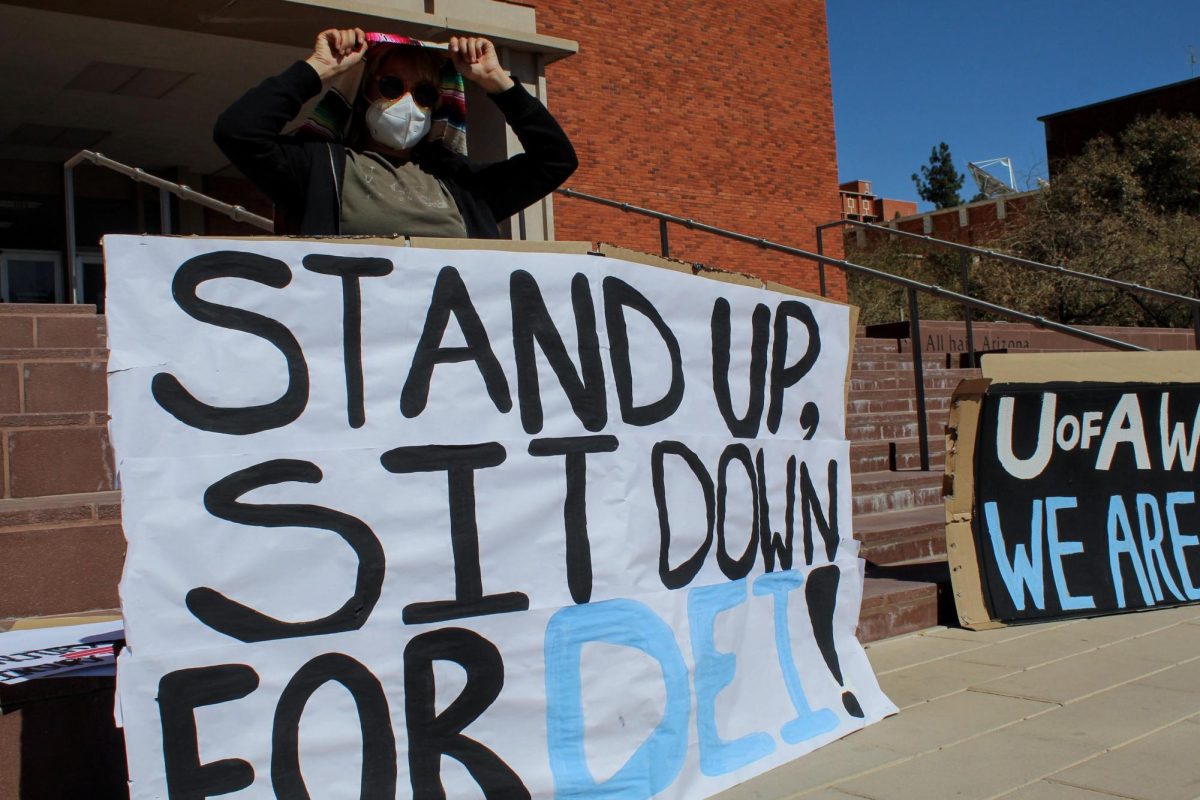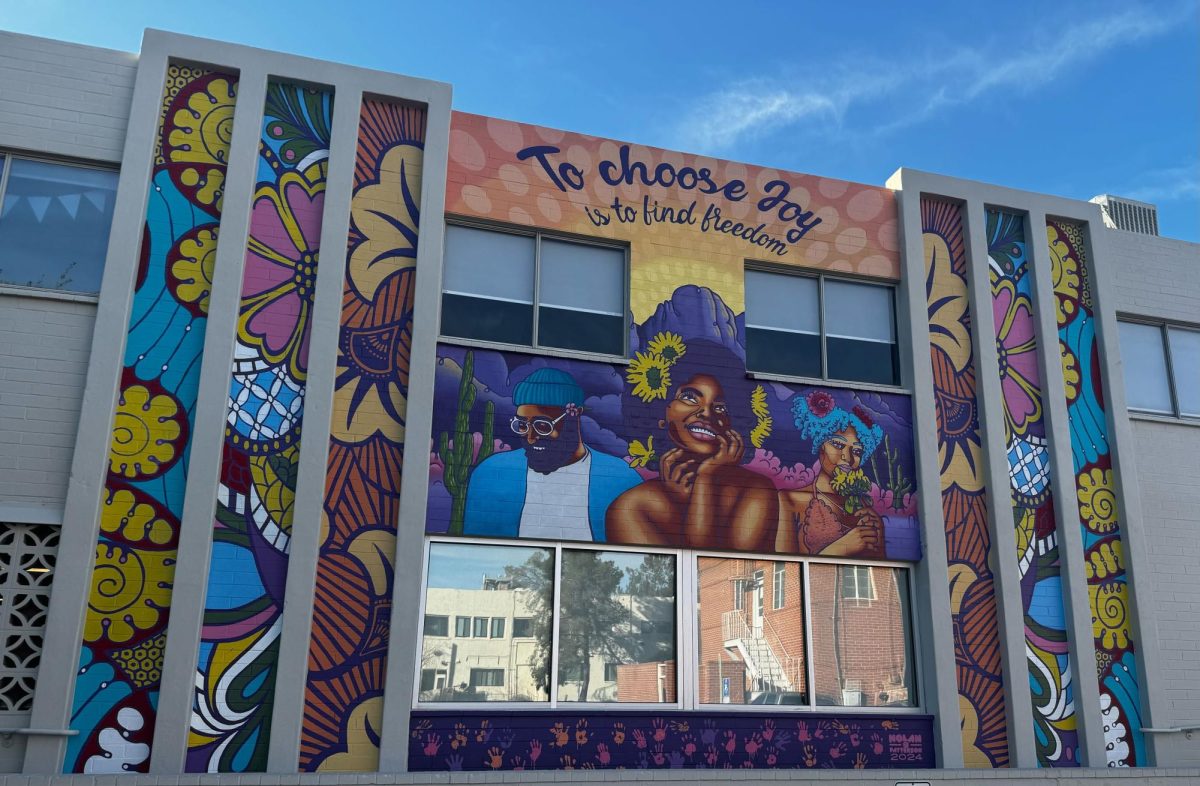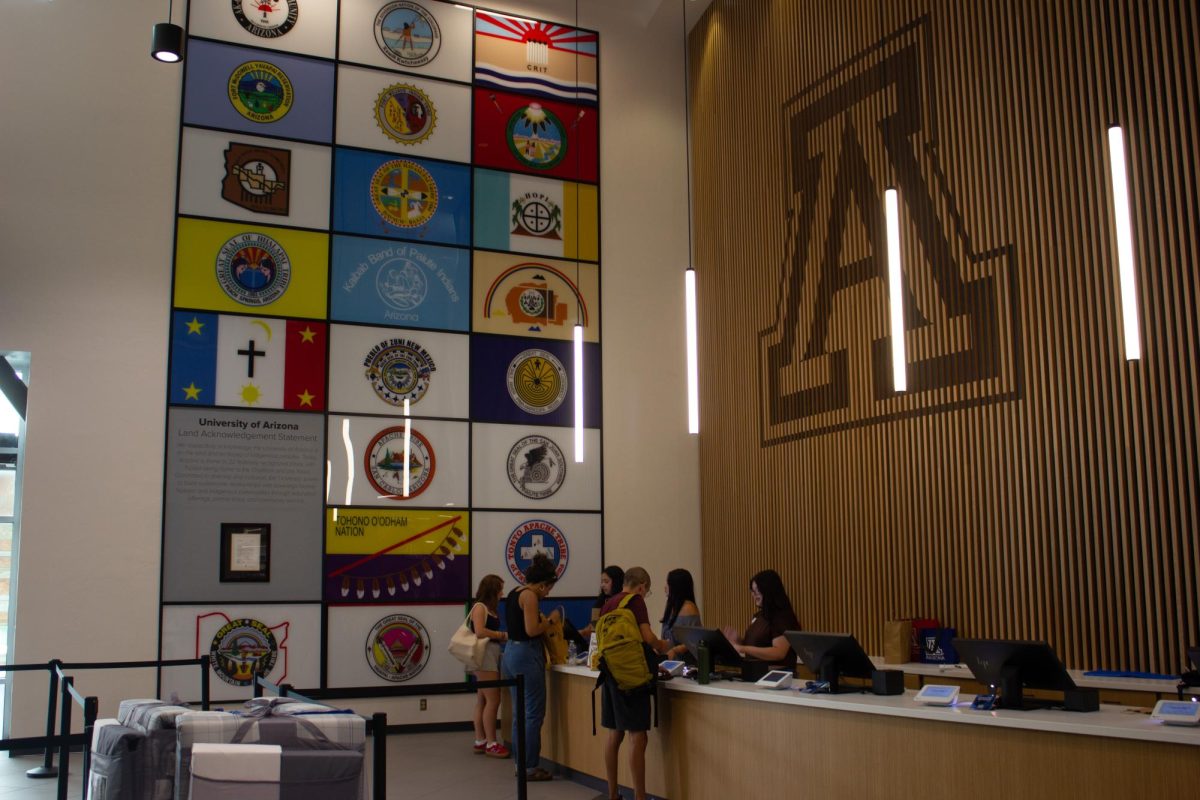Jack Emery, a pre-business freshman and a candidate for the Associated Students of the University of Arizona Senate, felt pretty confident in his position in the election polls. That is, until the Daily Wildcat ran its endorsements for ASUA candidates, in which he was listed as one of seven candidates for senate who didn’t have a platform available on the ASUA elections website.
“At the time I wasn’t really too concerned about it, because I knew that voting wouldn’t be based entirely on students going and checking out the platforms online,” Emery said. “But then when it came up in the [Daily] Wildcat, and we basically got called not accountable … well, that’s not on us.”
Emery said the responsibility for his platform being missing falls on Marc Small, elections commissioner for ASUA.
The candidates were encouraged to send their platforms to Small as soon as possible during the initial candidates’ meeting in February, and Emery sent his platforms to Small the next day.
“I was very prompt with it,” Emery said. “I sent him what I thought was an ideal outline of my platforms, and it didn’t go up.”
Emery said he noticed the platforms were going up sporadically, so he tried contacting Small to ask about his platforms.
Small told him the email must have been overlooked and asked him to send another, Emery said. After the second email was sent, his platforms still didn’t make it online.
“I know that several other candidates that were called out are on the same boat,” Emery said. “They’ve emailed him multiple times, and I’ve seen the emails they sent him.”
Emery said this wasn’t the first time he was unsatisfied with how Small had done his job.
“Throughout the process it’s been a bit of a struggle working with Marc and getting things approved,” Emery said.
This sentiment was echoed by Joey Steigerwald, a pre-business and political science freshman and candidate for ASUA Senate.
Steigerwald said he also sent Small his platforms multiple times, and Small told him the platforms never went up due to technical difficulties.
“I don’t really know how much I buy of that,” Steigerwald said, “and it looks really bad on my part that they were never published, even though I sent them in a long time ago and did my part to get them on [the website].”
Many of the senate candidates were frustrated with the amount of time it took Small to approve pieces of their campaign, Steigerwald said.
“Things took a while to get approved, just basic things, like my branding for example,” Steigerwald said. “My profile picture and my header photo … took like four to six days for him to let me know that it was OK, which seems a little long.”
Elena Gold, a philosophy, politics, economics and law sophomore and candidate for ASUA Senate, said she never had a problem getting things approved by Small.
“Everything that I needed approved, I got approved within 24 hours,” Gold said.
Gold said she sent her platforms to Small on Feb. 13 to be put up on the website, and they were promptly posted.
Screenshots sent to the Daily Wildcat of emails Emery sent to Small show that his platforms were sent on the same day, Feb. 13, but never posted.
Gold said while the elections process went well for her, she also made sure to maintain a good relationship with Small.
“It’s really hard when you have troubles with the elections commissioner,” Gold said. “It’s really important to have a working relationship with them in order to make the process go smoothly, and if you don’t, it really does hurt you.”
The elections commissioner is chosen by the ASUA President, and once chosen doesn’t report to anyone, said Morgan Abraham, an engineering management senior and president of ASUA.
“There’s no chain of command,” Abraham said. “There’s checks and balances with the elections commissioner, but as far as anyone who’s overseeing him, there’s no one, because that would take the integrity of the elections commissioner away.”
Students can challenge the decisions made by the elections commissioner by appealing to the elections commission or the ASUA Supreme Court, Abraham said. One such appeal was already brought this year, when the ASUA Supreme Court made a decision on whether candidates could use social media as a mode for endorsement.
Challenges can be brought against the election commissioner’s official decisions, but not against his methods for managing the elections process.
Emery said the situation frustrated him because he and the other candidates missing platforms did the same thing as those who have platforms, but got different results from Small.
“We went through the exact same process as every other candidate,” Emery said. “I honestly can’t tell you why some of them got put up and ours didn’t.”
Small said he set a flexible deadline for candidates to send their platforms in, and any platforms not online weren’t sent to him.
“I was prepared as possible,” Small said. “It’s the part of the candidate to find me to make sure that everything’s ready to go for their campaign.”
There were no official reports or formal complaints filed about the elections process this year, according to Abraham.
Small said he constantly reminded the candidates that he was there to help them through the process, and added that he felt not having platforms on the website shouldn’t harm the candidates in the elections.
Emery and Steigerwald both said they felt their lack of platforms, especially after being pointed out by the Daily Wildcat, was a serious risk to their election standing.
Emery added that it was unfair to not have his platforms posted online after he followed all the deadlines and rules that Small set, and that it was disappointing to be called out on something he couldn’t change.
“It’s just really unfortunate,” Emery said, “that something that is out of our control — that we went through the same process as the other candidates — is causing a voting differential and ultimately hurting us in the polls.”








